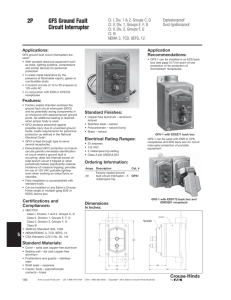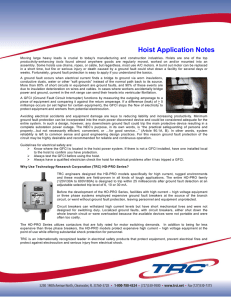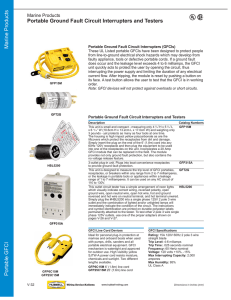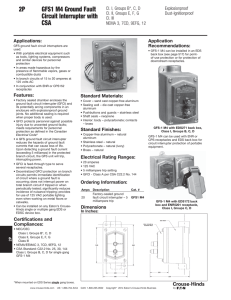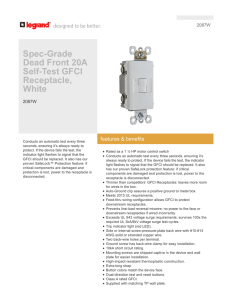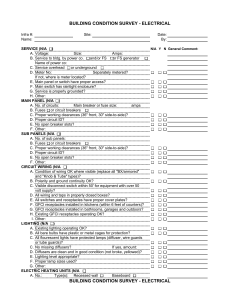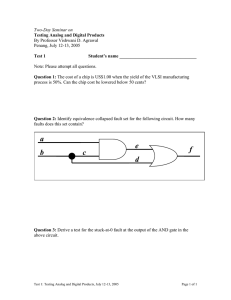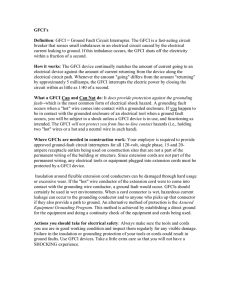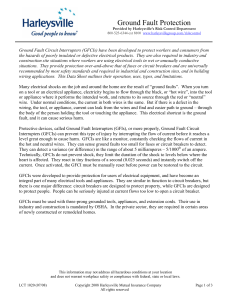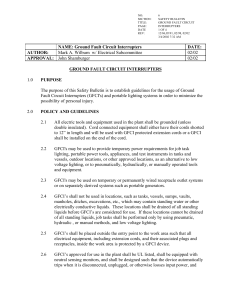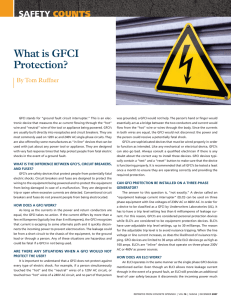Rule: All 120 volt, single phase, 15 and 20 ampere receptacle
advertisement
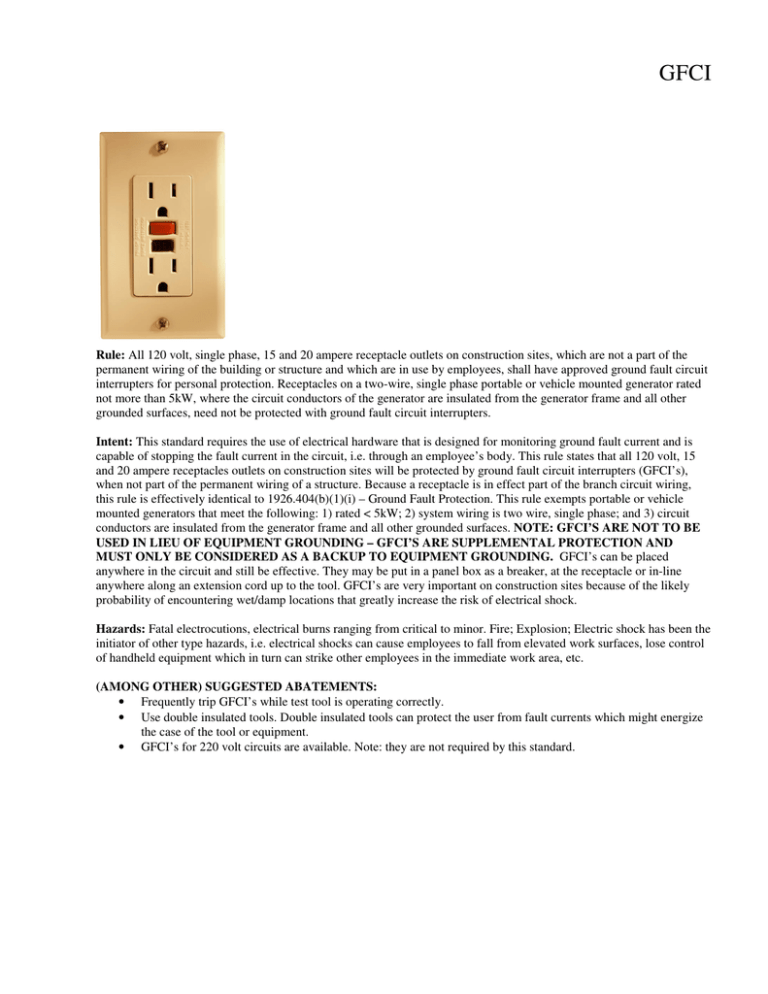
GFCI Rule: All 120 volt, single phase, 15 and 20 ampere receptacle outlets on construction sites, which are not a part of the permanent wiring of the building or structure and which are in use by employees, shall have approved ground fault circuit interrupters for personal protection. Receptacles on a two-wire, single phase portable or vehicle mounted generator rated not more than 5kW, where the circuit conductors of the generator are insulated from the generator frame and all other grounded surfaces, need not be protected with ground fault circuit interrupters. Intent: This standard requires the use of electrical hardware that is designed for monitoring ground fault current and is capable of stopping the fault current in the circuit, i.e. through an employee’s body. This rule states that all 120 volt, 15 and 20 ampere receptacles outlets on construction sites will be protected by ground fault circuit interrupters (GFCI’s), when not part of the permanent wiring of a structure. Because a receptacle is in effect part of the branch circuit wiring, this rule is effectively identical to 1926.404(b)(1)(i) – Ground Fault Protection. This rule exempts portable or vehicle mounted generators that meet the following: 1) rated < 5kW; 2) system wiring is two wire, single phase; and 3) circuit conductors are insulated from the generator frame and all other grounded surfaces. NOTE: GFCI’S ARE NOT TO BE USED IN LIEU OF EQUIPMENT GROUNDING – GFCI’S ARE SUPPLEMENTAL PROTECTION AND MUST ONLY BE CONSIDERED AS A BACKUP TO EQUIPMENT GROUNDING. GFCI’s can be placed anywhere in the circuit and still be effective. They may be put in a panel box as a breaker, at the receptacle or in-line anywhere along an extension cord up to the tool. GFCI’s are very important on construction sites because of the likely probability of encountering wet/damp locations that greatly increase the risk of electrical shock. Hazards: Fatal electrocutions, electrical burns ranging from critical to minor. Fire; Explosion; Electric shock has been the initiator of other type hazards, i.e. electrical shocks can cause employees to fall from elevated work surfaces, lose control of handheld equipment which in turn can strike other employees in the immediate work area, etc. (AMONG OTHER) SUGGESTED ABATEMENTS: • Frequently trip GFCI’s while test tool is operating correctly. • Use double insulated tools. Double insulated tools can protect the user from fault currents which might energize the case of the tool or equipment. • GFCI’s for 220 volt circuits are available. Note: they are not required by this standard.
